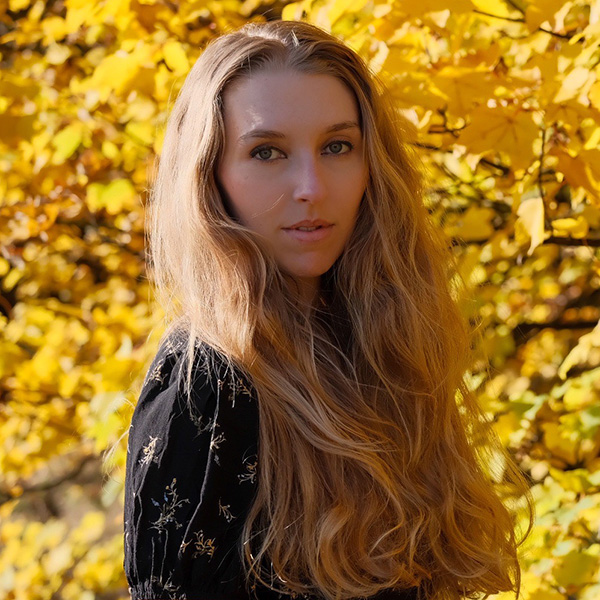I'm excited to interview Leila Murton Poole, runner-up in our 2022 Flash Fiction contest. Make sure to read her story A Convenient Curse then come on back to read our interview.
First, a bit more about Leila:
Leila is a writer/director who enjoys seeking out worthy stories to bring to the page and screen. She is currently based in New Zealand but loves to travel. In fact, she traveled from the UK to New Zealand without flying; a journey which constantly inspires her work.
Her latest short film Le Miroir has just finished a successful festival run, screening all over the world, and has recently been released online. In 2021, she won the NYC Midnight Screenwriting Competition from over 1800 contestants; the first female winner in 15 years. More recently, she started writing prose and is slowly, but (un)surely, working her way up to her first novel.
Leila usually writes at night and finds that most of her stories have a certain darkness to them. She used to only write secret stories but decided to start sharing them and so this is one of her first publications. You can find out more of her secrets at www.leilamurtonpoole.com.
---- Interview by Nicole Pyles
WOW: I love how you took a fairy tale and gave it a raw, dark twist. What was the inspiration behind this story?
Leila: Thank you! The story originated from Margaret Atwood’s Masterclass where she suggests using the ‘building blocks’ of well-known stories, but arranging them in new ways. Sleeping Beauty has always been my favourite fairy tale but I remember really questioning its logic when I was a child—even beyond the magic and spells. More specifically, it’s the idea of keeping the Princess safe by imprisoning her which seems paradoxical. The darkness in the story (even the Disney version) really intrigues me, which is all the more apparent in older versions of the tale. I started thinking of alternate ways in which the main narrative could be explained in a more modern and ‘real’ world. Sleeping Beauty is almost synonymous with flower imagery and so I used flowers, specifically poppies, to inform the plot; beautiful on the outside but with the power to destroy. They also became a metaphor for how things are not always what they seem, which is the core theme of the story.
WOW: You gave such a unique perspective on how you saw this fairy tale. This was the type of story I wanted to read several times to fully absorb what I was reading. When you first started this story, did you know how it would end?
Leila: Yes! I’m not a big planner or outliner but I almost always have the ending before I start to write. I personally find it helpful to have an end point to aim towards. This doesn’t mean that it can’t or won’t change but I think it makes the story feel more complete—even if it really isn’t! I usually start writing when I have the first sentence and an idea for the ending. With this specific story, it was slightly different as I also followed the sequence of events in Sleeping Beauty so I had that framework to use too.
WOW: I try to write that same way! If I know the ending, it works out much better for me. I'm so intrigued by your journey from the UK to New Zealand! How does that continue to influence your writing process?
Leila: Travelling by land and sea was a very immersive experience and a great way to find stories to tell. I still base characters off people that I met along the way—whether that be a physical description or a personality trait. One of the characters in my latest short film was based on a lady who sat opposite me for about thirty hours on the trans-siberian railway. Although we didn’t speak, I crafted her backstory and character in my head—a new level of people-watching! It was a great way to pass the time on long journeys.
WOW: That must have given some memorable people-watching! How did your story transform from first draft to final draft?
Leila: As I don’t really plan, this means that I usually need to do a lot of editing! My first drafts are typically nothing like my final ones. In this story, the main decisions were around what to reveal to the reader and when, as well as how to structure the story. I knew that I wanted the story to be in chronological order yet told from her older POV, when she’s in her deep ‘sleep’. Therefore, it was mainly about crafting the introduction and how to set up the story in an interesting way. I’m also hoping to turn this into a short animated film, where this story is the voiceover, so it was a slightly different process to other prose pieces as I was really considering the visuals too.
WOW: That sounds awesome! What are you currently working on that you can tell us a bit about?
Leila: Having been involved in a number of short films and written a few short stories, I’m working my way up to longer form in both mediums. I’m concurrently writing a TV series and novel which is a dystopian drama set in a world where having children is a crime. The best way to describe it is as the opposite of The Handmaid’s Tale in terms of the premise—can you tell that I’m a big Margaret Atwood fan?
WOW: Ha, I can tell! And I don't blame you. What do you hope readers take away from reading your story?
Leila: I think the main takeaway is that there isn’t a universal truth and even age-old stories can be thought about in new ways. Stories are often spun to suit those in power so… question everything!
WOW: Great takeaway! I can't wait to see what you come up with next. Looking forward to it!






0 comments:
Post a Comment